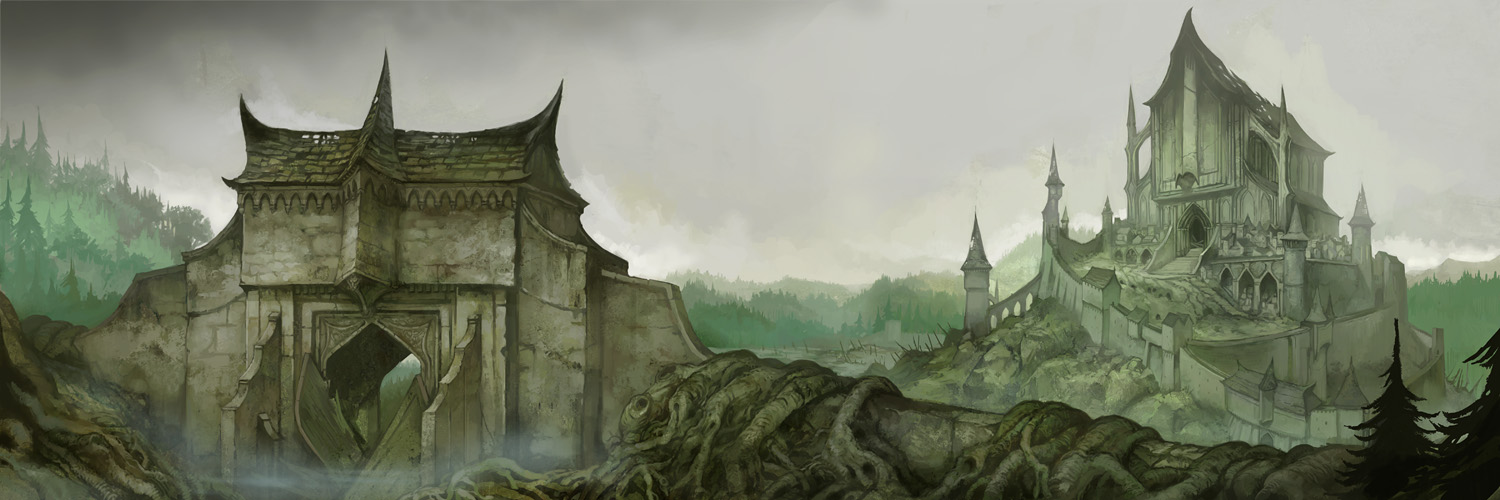 I have the pleasure of playing in an excellent campaign of The One Ring, run by Dr Mitch and with a fellowship of wonderful gamers. We finished the third season last night, and will resume season 4 in a few months.
I have the pleasure of playing in an excellent campaign of The One Ring, run by Dr Mitch and with a fellowship of wonderful gamers. We finished the third season last night, and will resume season 4 in a few months.
Playing over an extended period has really let the system and setting shine, in a way that doesn’t come through in one-shots or weekend runs.
Our characters have evolved (rather than just leveled-up), and there’s a sense of a living world. It changes from winter to winter. The actions and omissions of our fellowship are having increasingly palpable consequences over the five or so game years we’ve played through in around a dozen episodes.
There are some mechanical elements that I’m really beginning to enjoy, which I perhaps didn’t appreciate quite so much when we started playing.
Skill Groups and Abilities. There are 3 abilities (Body, Soul and Heart), and 6 skill groups (personality, perception, survival, movement, custom and vocation), which make a very comprehensive matrix of common skills. What you’re trying to achieve will likely best fit into one of the skill groups. The approach you choose to take informs which ability you use. The combination tells you which skill to roll with. It’s just one of several ways the game encourages role-playing over roll-playing.
(Aside: the Custom group made a lot more sense when I realised it wasn’t about bespoke skills, but skills to do with cultural customs.)
Evocative Traits and Skills. I may have been most skeptical about common skills like Song and Craft. But they fit beautifully with the setting, and fulfll a restorative role for characters that isn’t easily replaced by other game options (helping to reduce temporary Shadow). Traits (such as Minstelry and Smoking) are equally evocative, giving plenty of flavour to bring to the table.

Journeys. ‘Getting there’ is a huge part of the adventure in Tolkein’s writing. This is reflected superbly in The One Ring. They are critical opportunities to strengthen the bonds between characters, which has narrative and mechanical benefits. Each character takes a defined role – from Guide, Scout, Huntsman and Look-out – to contribute to the whole group surviving an excursion. Journeys can be arduous (in fact, the level of peril in the game generally feels quite lethal), but they are a key phase that are usually enjoyed rather than endured. For some reason, though, nobody in our group really likes to travel through Mirkwood.
The Fellowship Phase. Even when you’re not adventuring, you’re still adventuring in The One Ring. Downtime is essential for the group as a whole and individual characters to heal and grow, and this is given dedicated focus. A rhythm develops, which only really becomes apparent in extended campaign play. It feels natural, and fits well with the idea of a living world, time passing, and the characters and story developing.
Hope and Focus. The growing peril in Middle Earth is palpable in the campaign we’re playing, which I believe is based on the appropriately named Darkening of Mirkwood. As Shadow encroaches, Hope becomes more important, and the Fellowship becomes an important source of it. Each character has a Focus in the group who can help restore their Hope, or cast Shadow on them if they become injured. It’s an elegant mechanical reward for characters that look out for each other. The Fellowship is vital, and the rules reinforce that without any question.
 There’s plenty more goodness, but also a couple of things I struggle a little with. The idea of fatigue proxying for encumbrance makes some sense. It keeps it focussed on character impact, and that’s reinforced through the Weary mechanic. But theres’s something in the way it works with that doesn’t gel with me. I’m not sure what, and it may just be the way that it is handled on the character sheet. The same goes for treasure that may be stashed rather than carried.
There’s plenty more goodness, but also a couple of things I struggle a little with. The idea of fatigue proxying for encumbrance makes some sense. It keeps it focussed on character impact, and that’s reinforced through the Weary mechanic. But theres’s something in the way it works with that doesn’t gel with me. I’m not sure what, and it may just be the way that it is handled on the character sheet. The same goes for treasure that may be stashed rather than carried.
These are trivial complaints though. I’m decidely impressed with the subtlety and detail that Cubicle 7 have brought to this Tolkein property, which is richly illustrated under Jon Hodgson’s art direction (examples scattered throughout this post). It gives me hope they’ll do a great job with the license for Warhammer Fantasy Roleplay, my touchstone game in the genre.
Back to The One Ring – it is absolutely worth seeking out and making time for. The campaign and group I’m playing with have renewed my faith in and enjoyment of classic fantasy genre role-playing, especially in the long form. I’m glad to be playing it, and inspired to run a TOR campaign myself before long.



